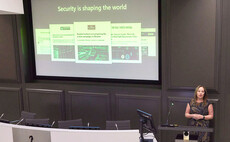Rocco Labellarte of the Royal Borough of Windsor and Maidenhead thought cloud would cut costs and headcount, but things haven't gone exactly as planned
The shift to cloud computing services hasn't yielded all the benefits that the Royal Borough of Windsor and Maidenhead had expected, according to the local authority's head of technology and change...
To continue reading this article...
Join Computing
- Unlimited access to real-time news, analysis and opinion from the technology industry
- Receive important and breaking news in our daily newsletter
- Be the first to hear about our events and awards programmes
- Join live member only interviews with IT leaders at the ‘IT Lounge’; your chance to ask your burning tech questions and have them answered
- Access to the Computing Delta hub providing market intelligence and research
- Receive our members-only newsletter with exclusive opinion pieces from senior IT Leaders






















